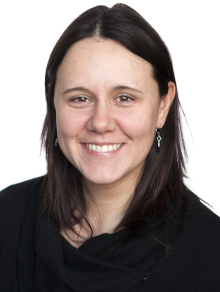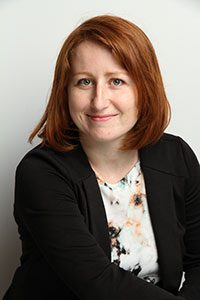Related pages
- Determinants in light of the pandemic
- Learning a skilled occupation during the COVID-19 crisis
- Literacy during the lockdown: uneven benefits
- Restarting classes around the world
- The first transition to school during a crisis
- The importance of supporting vulnerable youth during the pandemic
- The mental health of teens during the pandemic
- Transitioning to high school during the pandemic: issues and actions
school interruptions:
what does THE LITERATURE say about summer learning loss, and what can we infer from IT ABOUT lockdown-related school interruptions?
Published on May 7, 2020
GUEST CONTRIBUTION
By Véronique Dupéré, Isabelle Archambault, and Kristel Tardif-Grenier.
Réseau réussite Montréal is seeking researchers studying various aspects of school perseverance as it relates to the current health crisis. We thank them for contributing to our special section on COVID-19 and educational success.
A regression that widens the gap | A prolonged interruption and limited resources | Solutions | About the authors
All teachers know that during the long summer break, their students lose a certain amount what they learned in school, which is why there is a review period at the start of the school year.
Research has born this out. On average, in Canada and around the world, students tend to regress over the summer (Alexander et al., 2007; Davies and Aurini, 2013; Davies et al., 2015; Lindahl, 2001).
AN UNEQUAL REGRESSION—DISADVANTAGED STUDENTS FALL FURTHER BACK
But the term “on average” conceals significant variations. While the regression in learning is relatively modest for most students, it is clearly more pronounced for some and non-existent for others—indeed, some students actually make gains over the summer.
While students in advantaged families are more likely to fall into the latter categories, those who regress tend to be from low-income families. The gap between students from advantaged and disadvantaged backgrounds widens during the summer break, but this does not happen during school months.
The advantages that students from more affluent families enjoy over their disadvantaged peers in terms of grades and perseverance in school thus appear to stem to a large degree from accumulating superior learning experiences summer after summer (Alexander et al., 2007).
COVID-19: AN EXTRA INTERRUPTION FOR THE 2019–2020 SCHOOL YEAR
The COVID-19 crisis could widen this gap further. When Québec students return to school in the fall, they will have experienced not only the usual regression from the long break in July and August but also from the forced break due to the pandemic.
The need to catch up will therefore likely be more pronounced when the school calendar returns to normal, especially among groups of students who are more susceptible to regression year after year.
A PROLONGED INTERRUPTION AND LIMITED ACCESS TO RESOURCES
Even students who ordinarily maintain their learning during long breaks may not be able to this time. This is not only because of the exceptional duration of the break, but also because some children currently lack access to the resources, computer equipment, internet connection, and other sources of educational or emotional support they need to continue their schooling.
Nor will those who usually attend camps, go to libraries or museums, or engage in other stimulating cultural, sports, or scientific activities have access to these services during the lockdown, which will be another source of regression.
For these reasons, some researchers estimate that this year, students will retain only 50 to 70 percent of the knowledge in mathematics and reading that they would gain in a typical year. (Kuhfeld and Tarasawa, 2020).
FINDing SOLUTIONS from research on “SUMMER LEARNING LOSS”
In addressing the need for students to catch up when they return to school, various solutions suggested in the academic literature to attenuate “summer learning loss” could prove relevant (Cooper, 2003; McCombs et al., 2011).
Changing the school calendar
Some of these solutions concern extending or reconfiguring the school calendar to avoid such long interruptions. Other solutions do not require changing the number of school days in the calendar but rather increasing the number of hours of teaching per day.
Increasing access to summer enrichment programs and summer courses
Another avenue, which does not require changes to school operations during the school year, is to improve availability and accessibility to summer enrichment programs and summer courses (Davies et al., 2020).
Its flexibility makes this an attractive solution, but it is no magic bullet. Many conditions must be met for real learning to occur. For example, studies show that to be effective, these activities must take place over a number of weeks, be led by qualified staff, and integrate recreational activities (Alexander et al., 2016; Davies et al., 2020). Nor is it clear whether the programs identified in the literature will be effective when done remotely.
Screening at-risk youth
Finally, regardless of which scenario is adopted, measures should be put in place immediately to identify and support those children and teens most in need of assistance, including during the summer.
In a situation when, for the great majority of Québec students, school will not begin before September, only substantial efforts involving all stakeholders will help reduce regressions and inequality.
ABOUT THE AUTHORS
Associate professor
School of Psychoeducation, Université de Montréal
Canada Research Chair on the Transition to Adulthood
Co-holder of the Myriagone – McConnell-Université de Montréal Research Chair in Knowledge Mobilization Among Youth
Researcher
Public Health Research Institute of the Université de Montréal
Institut universitaire Jeunes en difficulté
Groupe de recherche sur les environnements scolaires
Associate professor
School of Psychoeducation, Université de Montréal
Canada Research Chair on School, Child Well-Being, and Educational Success
Co-holder of the Myriagone – McConnell-Université de Montréal Research Chair in Knowledge Mobilization Among Youth
Researcher
Centre interdisciplinaire de recherche sur le cerveau et l’apprentissage (CIRCA)
Institut universitaire Jeunes en difficulté
Groupe de recherche sur les environnements scolaires
Professor
Department of Psychoeducation and Psychology, Université du Québec en Outaouais
Reasearcher
Institut universitaire Jeunes en difficulté
![]() Stay informed about new content added to our Determinants and the Pandemic series. -> Sign up for our newsletter.
Stay informed about new content added to our Determinants and the Pandemic series. -> Sign up for our newsletter.
References
Alexander, K., Pitcock, S., and Boulay, M. C. (2016). The Summer Slide: What We Know and Can Do About Summer Learning Loss. Teachers College Press.
Alexander, K. L., Entwisle, D. R., and Olson, L. S. (2001). “Schools, Achievement, and Inequality: A Seasonal Perspective.” Educational Evaluation and Policy Analysis, 23, 171–191.
Alexander, K. L., Entwisle, D. R., and Olson, L. S. (2007). “Lasting Consequences of the Summer Learning Gap.” American Sociological Review, 72, 167–180.
Cooper, H. (2003). Summer Learning Loss: The Problem and Some Solutions. Champaign, IL: Children’s Research Center, University of Illinois and ERIC Clearinghouse on Elementary and Early Childhood Education.
Cooper, H., Nye, B., Charlton, K., Lindsay, J., and Greathouse, S. (1996). “The Effects of Summer Vacation on Achievement Test Scores: A Narrative and Meta-analytic Review.” Review of Educational Research, 66, 227–268.
Davies, S. and Aurini, J. (2013). “Summer Learning Inequality in Ontario.” Canadian Public Policy, 39, 287–307.
Davies, S., Aurini, J., and Milne, E. (2020). “Summer Learning: Classic, New, and Future Research.” In S. H. Bae, J. L. Mahoney, S. Maschke & L. Stecher (eds.), International Developments in Research on Extended Education: Perspectives on Extracurricular Activities, After-school Programmes, and All-day Schools (pp. 193–210). Opladen, Germany: Verlag Barbara Budrich.
Davies, S., Aurini, J., Milne, E. et Pierre, J. J. (2015). “Les effets des programmes d’été de littératie: Les théories sur les opportunités d’apprentissage et les élèves «non traditionnels» dans les écoles de langue française en Ontario.” Canadian Journal of Sociology, 40, 189–222.
Downey, D. B., von Hippel, P. T., and Broh, B. A. (2004). “Are Schools the Great Equalizer? Cognitive Inequality During the Summer Months and the School Year.” American Sociological Review, 69, 613–635.
Kuhfeld, M. and Tarasawa, B. (2020). The COVID-19 Slide: What Summer Learning Loss Can Tell Us About the Potential Impact of School Closures on Student Academic Achievement. Portland, OR: NWEA.
Lindahl, M. (2001). Summer Learning and The Effect of Schooling: Evidence from Sweden. Bonn, Germany: Discussion paper, Institute for the Study of Labor.
McCombs, J. S., Augustine, C. H., Schwartz, H. L., Bodilly, S. J., McInnis, B., Lichter, D. S., and Cross, A. B. (2011). Making Summer Count: How Summer Programs Can Boost Children’s Learning. Santa Monica, CA: Rand Corporation.
Patall, E. A., Cooper, H., and Allen, A. B. (2010). “Extending the School Day or School Year: A Systematic Review 0f Research (1985–2009).” Review of Educational Research, 80, 401–436.
Sandberg Patton, K. L. and Reschly, A. L. (2013). “Using Curriculum‐based Measurement to Examine Summer Learning Loss.” Psychology in the Schools, 50, 738–753.
WEBINAr 2: Teen mental health during the pandemic
DATE: THURSDAY, MAY 21 AT 8:30 A.M. (DURATION: 1 HOUR 15 MINUTES) (in French)
During this crisis that has disrupted everyone’s lives and created many challenges and issues, the mental health of teens is of great concern. Teens find themselves in an unprecedented situation during a time in their development already marked by considerable change. While some are coping with the situation with relative composure, others are experiencing significant distress.






